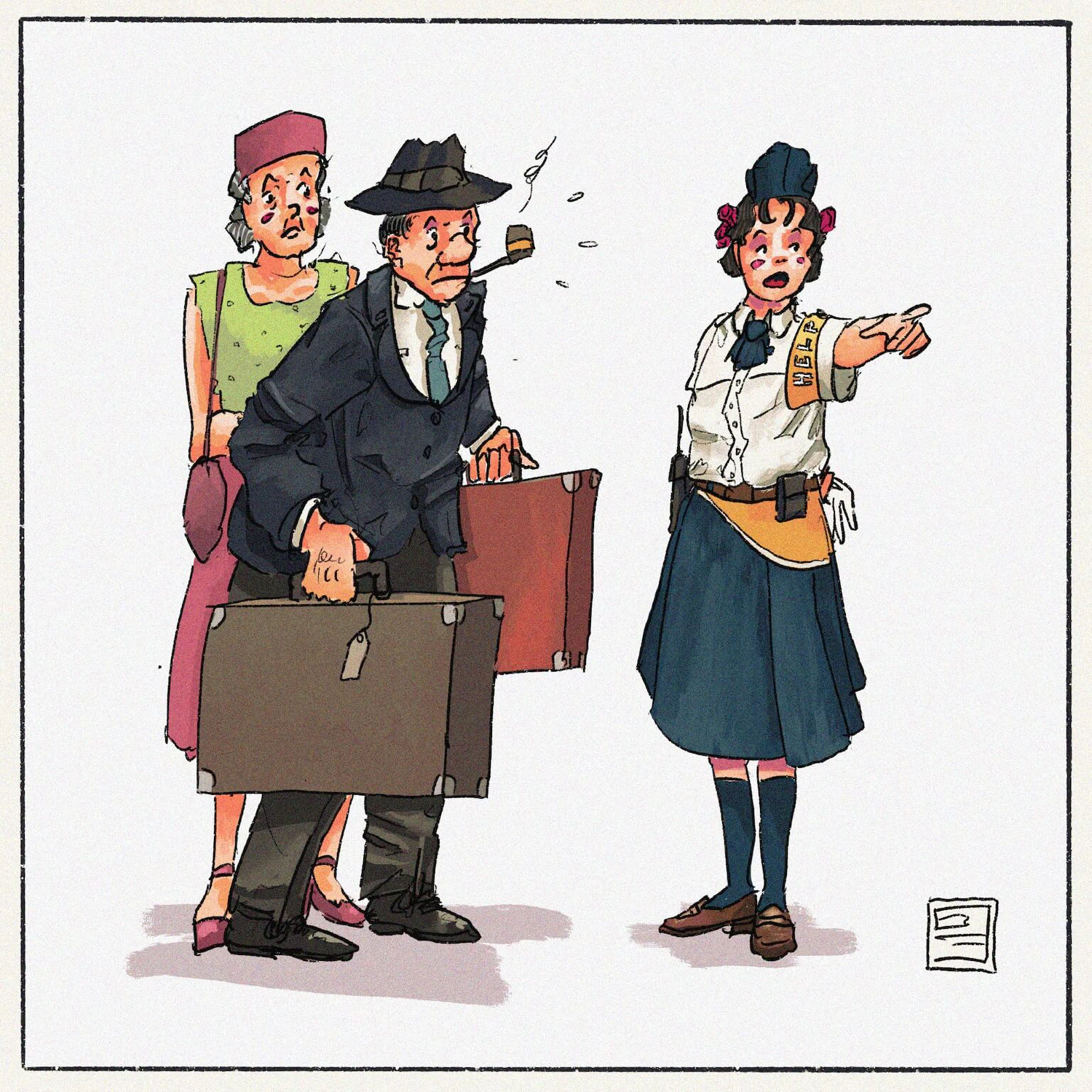NEW Story: Sunday Morning
A Jetport Guide shuffles Americans onto the airport maglevs

This article is not part of Vekllei canon. It may be old, obsolete or just a bit of fun.
It is very difficult to obtain papers for tourism in Vekllei as an American, despite the fact that the Arctic island nation is positioned obstinately between the Americas and Europe. It’s not made difficult for any discernible political reason, either — relations with the U.S. are as good as they could be for a country like Vekllei. Nonetheless, tourism is regarded as a risk rather than an opportunity, and most Americans who visit for pleasure are wealthy enough to put up the sums of cash required to enter on the national carriers that exclusively operate in Vekllei’s airspace.
Stepping out into the country for the first time is a hell of an experience. As an American you don’t really have a framework for understanding these people. They’re not European, or really Scandinavian. They don’t share many cultural or political bonds with the continental powers. And they’re not as easy to politicise or orientalise in the same way the folk of the USSR or Asia can be. They’re a mystery.
Furthermore, work in Vekllei is social, and there are no real laws governing child labour. It is common to see children as young as twelve working as guides in the city’s largest jetport, Vekllei International, since work is basically a form of play. The dependence on Vekllei people for help (since a foreigner can only navigate society with the assistance of those that speak the language and understand the economy) essentially infantilises dignified, wealthy tourists otherwise not used to being looked down upon. This is further exaggerated by Vekllei’s complete absence of honourifics, lack of professional culture and suspicion of foreigners, meaning that even tourist infrastructure in the country regards Americans as a curiosity to be investigated and gawked at.
These barriers to entry only further isolate the country from the outside world, in a position that is (in the late 2070s) totally unique. They are not quite ‘white’, not quite ‘religious’, not quite ‘Western’ and not quite ‘communist’. Their iconography is nonsense; their language is spoken only by themselves, and their political motivations are as complex and built on intuition as they are incomprehensible to outsiders. Hence the scene above, where the new assistant to the ambassador and his wife are thumbed out of the terminal by a thirteen-year-old girl who speaks broken English.
The young worker pictured here carries only a radio for communicating with her colleagues and a pouch to fill with personal items, jelly beans or whatever takes her fancy. They work in shifts of usually a few hours each, which are coordinated with the larger nuclear monowing jets that land from the Americas around noon.
